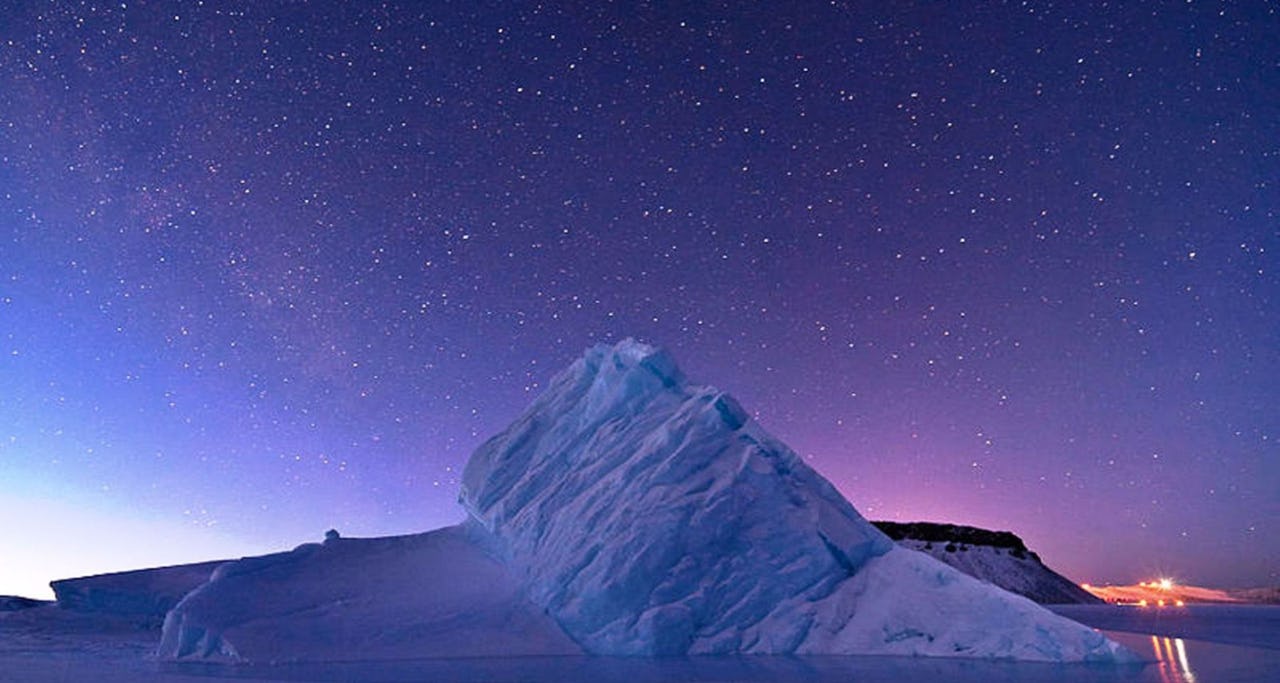The Arctic Clarion Call for Africa

Iceberg in North Star Bay, near Wolstenholme Fjord, Greenland. Photo: Jeremy Harbeck
For far too long, the average African resident in Lagos, Nairobi, Cairo, or Johannesburg has been thinking what happens in the Arctic stays in the Arctic and does not affect Africa.
For far too long, most Africans, if not all, have acted with indifference in matters relating to the Arctic.
For far too long, most African countries have not realized the potentials of engagement in Arctic affairs.
Waking the Sleeping Giant
As an Arctic enthusiast with a keen interest in African countries assuming their rightful place in the comity of nations through cutting-edge thought leadership, the author finds the rationale for the indifference of African countries to the Arctic hard to comprehend. Indeed, one struggles to understand the lack of engagement of African countries with the Arctic. This stands in stark contrast to China, which despite not being an Arctic state, joined the Arctic Council – the central political forum of the region – as an observer in 2013 alongside five other countries. Just recently, China took another proactive step in releasing an Arctic Policy, with a view to boosting trade, energy security, and increasing its participation in Arctic affairs.
Hence, this article examines how African countries can become active participants and distinguished stakeholders in Arctic affairs. It seeks to underscore why African countries can no longer afford to adopt a ‘siddon look’ (a Nigerian euphemism for being passive and acting nonchalant or with great indifference). This article, therefore, is a clarion call to all concerned leaders and relevant stakeholders in African countries—particularly those with an interest in the mitigation of, and adaptation to, climate change—to rise to the occasion and realize the potentials of active engagement in Arctic affairs.
Desired: Renewed Thinking
Research has shown that human activity, particularly with respect to activities in the Arctic, are capable of affecting lives, agriculture, and climate change even in other parts of the globe, including the African continent. The impact of warming and melting in the Arctic on the global climate and world sea levels should make the Arctic subject of public and political discourse also in Africa. In other words, the fact that what happens in the Arctic has a global impact and can be a legitimate concern of people far beyond the Arctic Circle should be a good motivation for African countries to get in engaged in Arctic affairs. The Norwegian Polar Institute, put the point more aptly: “Warming in the Arctic has consequences not only for climate developments […] but also throughout the world. First and foremost are the consequences for the climate system itself […] In addition, warming will affect sea level, which has a direct impact on people and societies in many parts of the planet.”
In sum, African countries need to come to the realization that whatever goes on in the Arctic does not necessarily stay in the Arctic. While the efforts of some African countries in global collaboration to address climate change is quite commendable, such active participation is yet to be seen in Arctic affairs through partnerships with Arctic states.
Participation in Arctic Affairs: In search of the Best Approach for African Countries
First of all, some efforts already exist in terms of collaboration between African and Arctic states on Arctic issues, such as on energy security. But African countries can do much more be more proactively involved in Arctic regions. While acknowledging that there is no one-size-fits-all approach given the uniqueness of each African country, African countries generally can draw relevant lessons from countries with observer status in the Arctic.
Thus, taking proactive steps in Arctic affairs would include African countries applying to become observers of the Arctic Council. Put differently, African nations will need to commit inter alia to the recognition of the Arctic States’ sovereignty, sovereign rights, and jurisdiction in the Arctic; respect the values, interests, culture, and traditions of Arctic Indigenous peoples and other Arctic inhabitants; and demonstrate a concrete interest as well as ability to support the work of the Arctic Council, including through partnerships with Arctic states.
African countries can equally fund scientific research on the Arctic, particularly looking at the impact of human activities in Arctic regions on weather and agriculture in African countries.
Another approach will be providing thought leadership on Arctic related issues, for example by encouraging scholarly publications by leading academic institutions on environment, climate, biodiversity, peaceful resolution of Arctic maritime boundaries disputes, and other issues pertaining to the Arctic. African countries can also seek collaboration with Arctic states’ research and funding organizations and Arctic scientific organizations, such as the International Arctic Science Committee (IASC).
However, African countries must respect the sovereign rights of Arctic states over living and non-living resources in the areas subject to their jurisdiction in accordance with international law. African countries must equally keep in mind the need to respect the traditions and cultures of the Indigenous peoples of the Arctic. In turn, they may well demand the respect for the rights of non-Arctic States to carry out activities in the north.
For the above listed reasons, African countries can no longer afford to be passive in Arctic affairs. Stemming from the position that the future of the Arctic entails the well-being of humanity as a whole, in fact all countries have a stake in Arctic affairs.
The Future Is Now!
In all, it is time for African countries to change their mindsets and move on from the ‘siddon look’. Let African countries, whether individually and/or through the African Union, swiftly rise to the occasion and become more active in Arctic affairs.